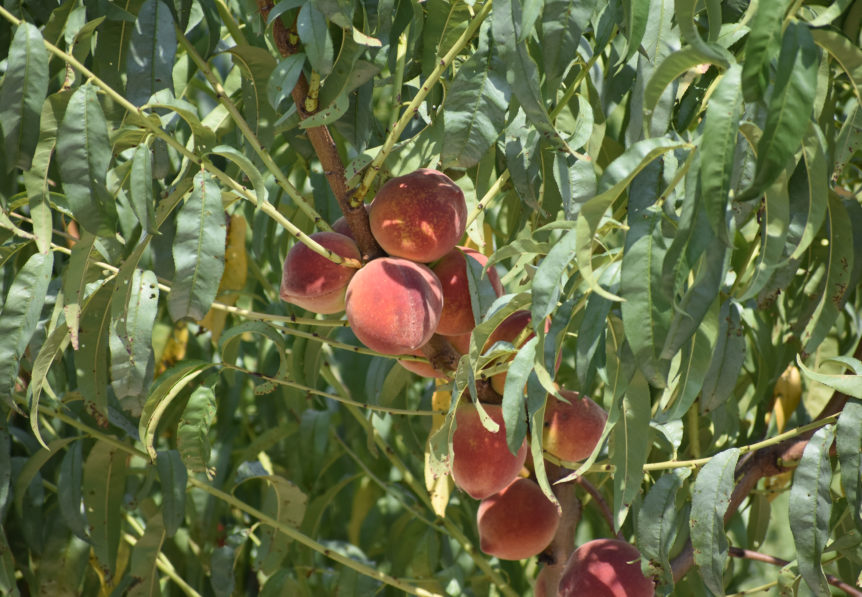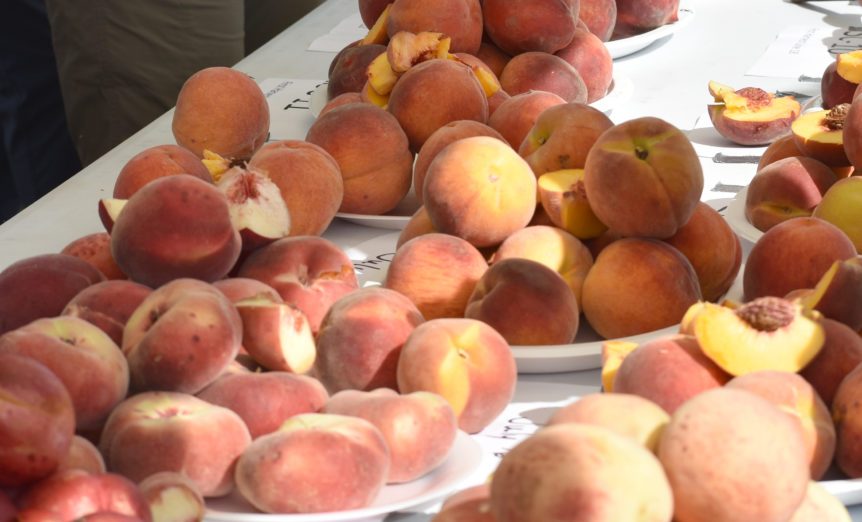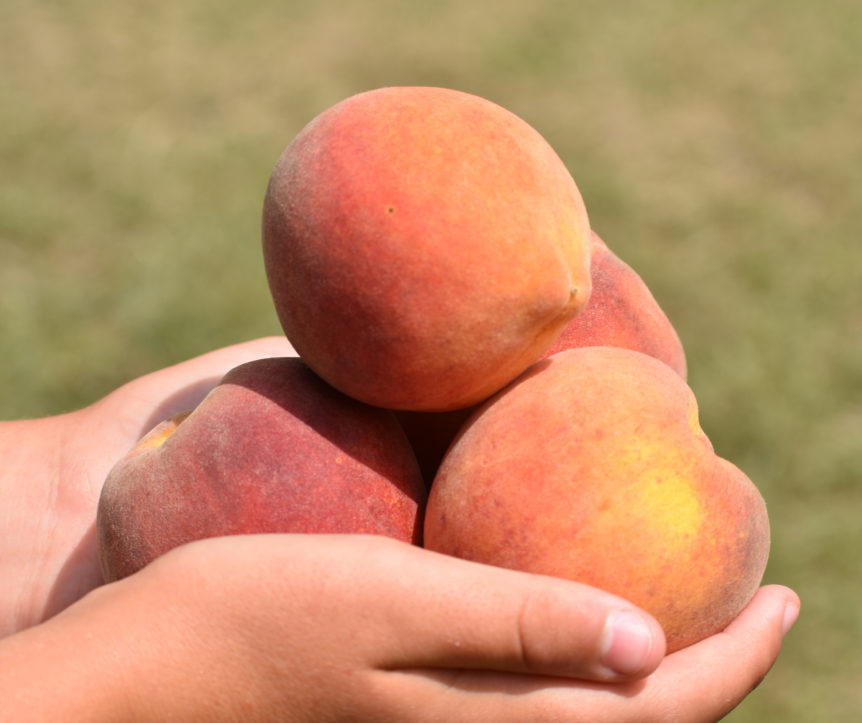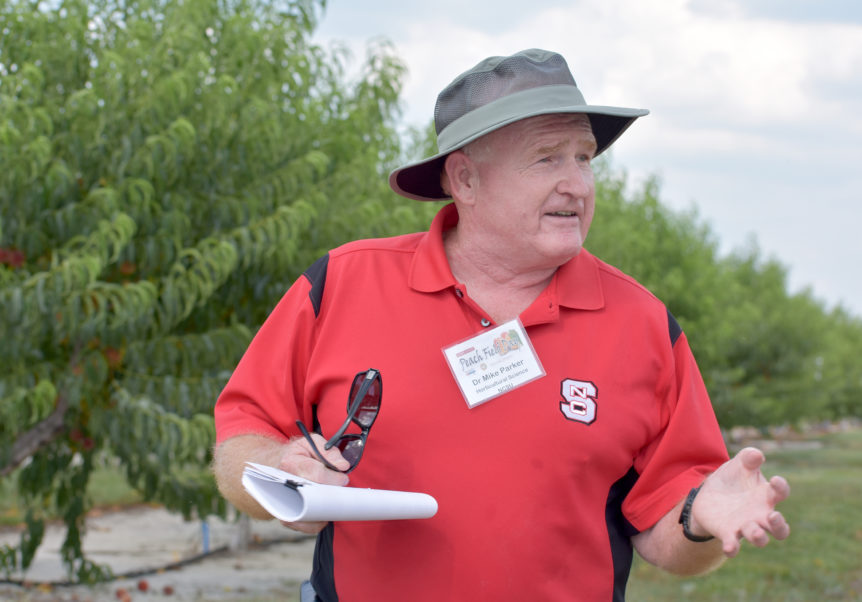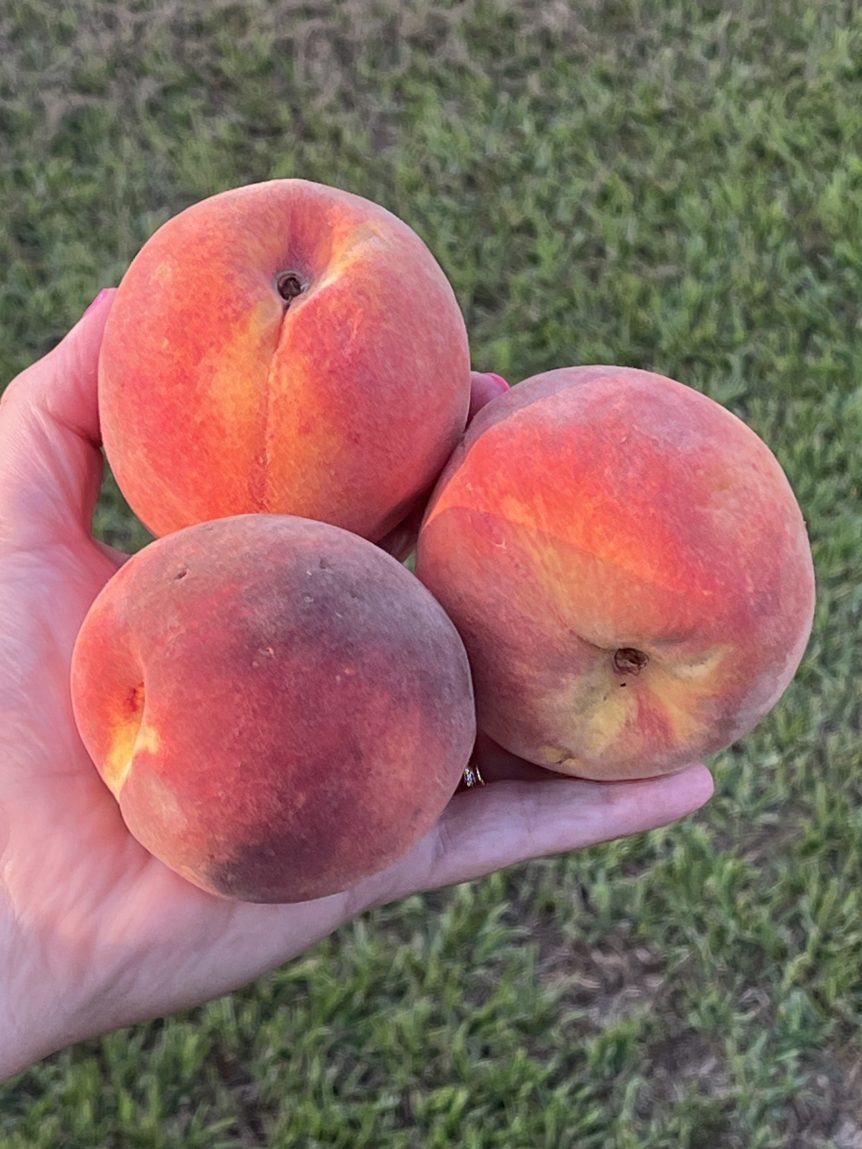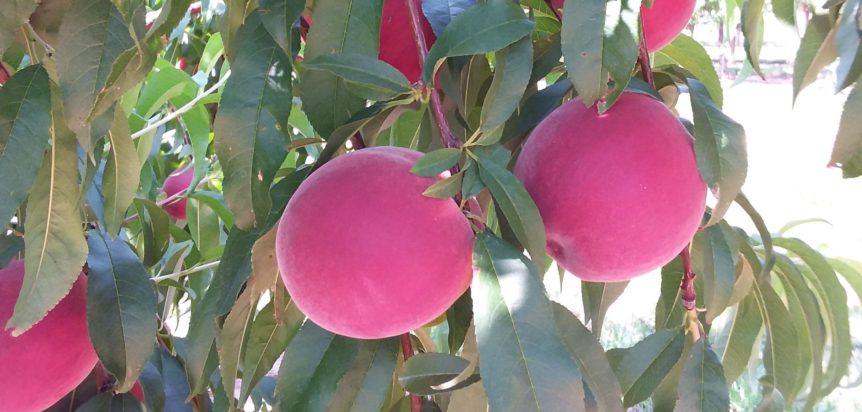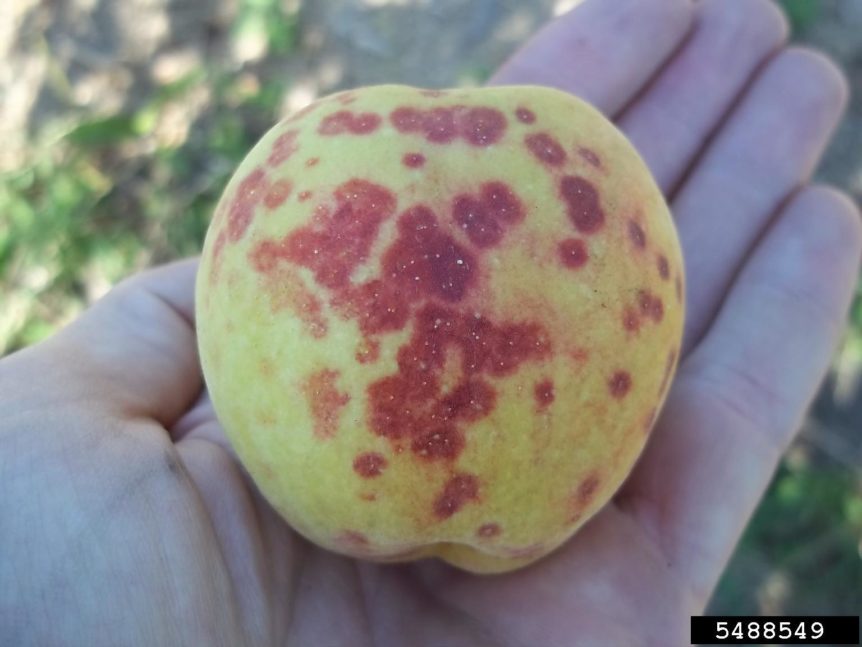Peach producers now have two new cultivars to consider as part of their farming operations. The U.S. Department of Agriculture (USDA) Agricultural Research Service (ARS) stone fruit program in Byron, Georgia announced it has released two new early season peach cultivars named ‘May Joy’ and ‘Cardinal Joy.’ May Joy requires at least 650 chill hours and produces yellow-fleshed, clingstone fruit …
Peach Management Tips for Southeast Growers
By Clint Thompson Peaches in Georgia and Alabama may not be in season, but their management is a year-round job for growers. Jeff Cook, University of Georgia Cooperative Extension agriculture and natural resources agent for Peach and Taylor counties, discussed the current management strategies growers should be implementing on the heels of a bumper crop. “This time of year, we’re …
Meet UGA’s New Peach and Citrus Breeder
By Clint Thompson The University of Georgia (UGA) turned to one of its own to man the newly created peach and citrus breeder position in the College of Agricultural and Environmental Sciences (CAES). Dario Chavez joined UGA in 2014 and has conducted peach research on the UGA Griffin Campus for the past 10 years. Chavez will expand his research to …
Georgia’s Peach Production Nets 85% to 90%
By Clint Thompson What a difference a year made for Georgia’s peach producers. One year after experiencing the lowest of lows with regards to peach production, most of the state’s growers enjoyed the highest of highs with this year’s crop. Phil Brannen, University of Georgia Cooperative Extension fruit disease specialist, described how different this year’s yield production was. “I think …
Minimal Disease Pressure in Georgia’s Peach Crop This Year
By Clint Thompson Georgia’s peach producers rebounded this year with a bumper crop. A big reason for their success was the lack of disease pressure prevalent in peach orchards this year. The prolonged drought during the early summer led to a reduction in diseases that are normally problematic for growers, says Phil Brannen, University of Georgia Cooperative Extension fruit disease …
Game Changer: Chemical Option for Peach Thinning
By Clint Thompson One of the most tedious, but necessary parts of peach production centers on fruit thinning. Producers must remove much of their crop so what’s remaining can increase in size and yields. One North Carolina State University researcher is confident a chemical option will soon be a viable alternative for growers. Mike Parker, associate professor and Extension specialist …
Sweet Georgia Peaches a Hit with Growers, Customers
By Clint Thompson Georgia’s peach producers are finally enjoying the fruits of their labor this year. “It’s good, it’s really hard to complain about this crop,” said North Georgia producer Drew Echols. “The flavor is great. There’s a lot of beautiful peaches.” Echols and other growers with a crop had reason to be smiling this harvest season. Last year’s crop …
Best North Carolina Peaches in Recent Memory
By Clint Thompson North Carolina peach farmers are experiencing a bumper crop this year; the best crop in recent memory, according to one producer. “It’s the best crop I’ve seen, and I’m 44-years-old. It’s an outstanding crop for North Carolina,” said Brad Thompson, president of the North Carolina Peach Growers’ Society. The reason for such optimism is simple; there was …
Specialty Crop Grower Magazine: Breeding Peaches for Climate Resilience
By Frank Giles When Ksenija Gasic interviewed for her position at Clemson University in 2007 to reboot the school’s peach breeding program, she saw an omen of things to come. A late freeze that year had wiped out the peach crop on campus and across the state. Building a Better Program Gasic was hired and joined Clemson as its peach …
Specialty Crop Grower Magazine: Managing San Jose Scale in Peaches
By Frank Giles San Jose scale is one of the more problematic pests peach growers in the Southeast must manage. Since the early 2000s, San Jose scale has emerged as a one of the region’s most common and damaging pests. Spread The scale is a prolific breeder. According to the University of Georgia (UGA), the female can produce about 10 …











